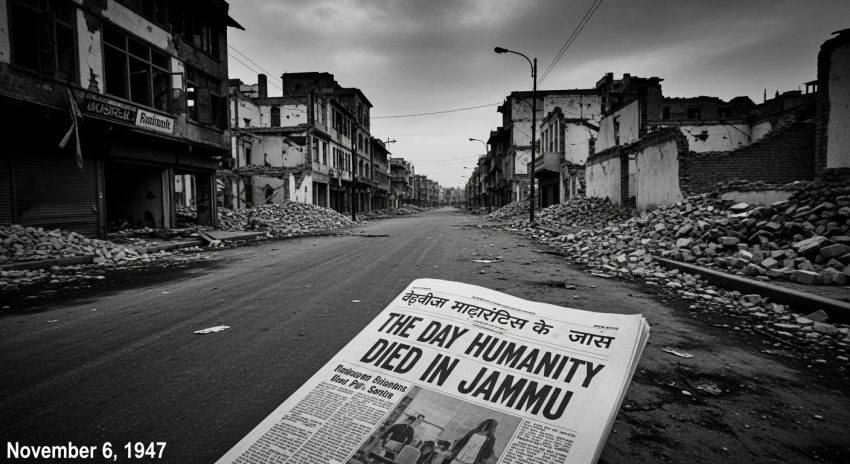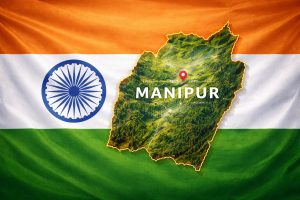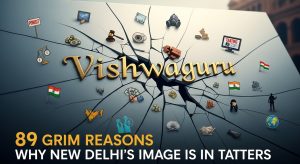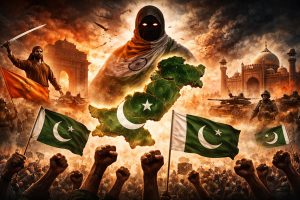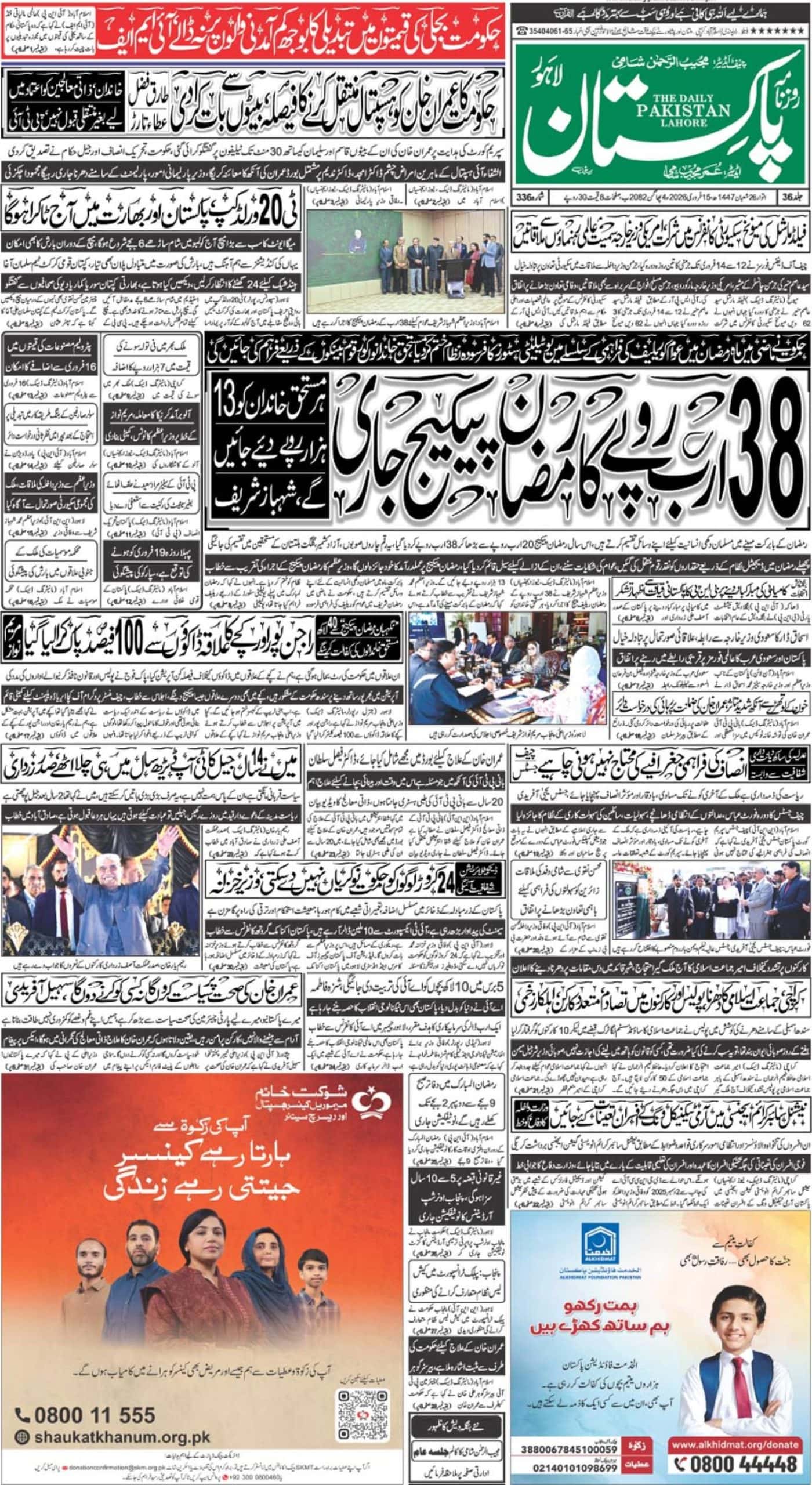Some dates never become history. They stay in people’s voices, in the soil where they once stood, in quiet prayers spoken at night. November 6, 1947 is one of those dates for Kashmiris. It isn’t just a day on a calendar — it is a memory that still hurts. Families in Jammu walked out believing they were moving toward safety. Parents held their children close. Husbands tried to comfort shaking wives. Elders whispered verses, hoping God would protect them. They carried small bags, maybe a blanket, maybe a family photograph — whatever little they could take from the life they were being forced to leave behind. But what returned was silence. Not footsteps. Not news. Just silence — the kind that tells you something terrible happened. And that silence has lived with Kashmiri families ever since, passed from one generation to the next, like a wound that time never managed to close.
In those weeks after partition, Jammu was not just another region struggling with uncertainty. It was a Muslim-majority land — around sixty-one percent — tied by faith, geography, and sentiment to Pakistan. People believed independence meant dignity and the right to choose their future. But instead of ballots, they met guns. Instead of dialogue, they faced deceit.
Under Maharaja Hari Singh’s rule, with state forces and armed extremists alongside, a plan unfolded — quietly at first, then brutally. Muslims were gathered with the promise of safe passage toward Pakistan. Families packed whatever little they could, believing they were going to safety. But on the roads out of Jammu, hope turned into horror. The caravans were ambushed. Men, women, children — no one was spared. It was not chaos. It was a cleansing.
Nearly 250,000 Muslims were killed. More than half a million were forced to flee. Over 123 Muslim villages disappeared in those days — emptied, burned, silenced. A community that once formed the majority became a minority in its own home. By 2011, the Muslim population in parts of Jammu was barely seven percent. When numbers collapse like that, history does not ask why. It already knows.
People who lived through those days still talk about the trains that came into Sialkot — not carrying frightened families, but bodies. Whole coaches filled with people who never reached safety. Ask anyone who survived. They’ll tell you. They’ll tell you about the mothers who tried to become walls for their children, wrapping them in a final, futile embrace. They’ll tell you about the young men whose last earthly possession was the Qur’an held tight against their heart, a prayer on their lips. They’ll tell you about the old grandfathers who simply sat, too tired to run, and met their end with holy verses as their only defense. No one who escaped brought anything with them. They didn’t pack bags or grab photos. They just ran, leaving everything but the ghosts behind.
And as they walked — bleeding, broken, but unbending — one sentence kept rising:
Kashmir banay ga Pakistan.
It was not a political chant then. It was the last breath of martyrs who believed they were walking toward a future with dignity. Those who thought violence would bury that dream discovered something else: dreams held by the dying often outlive empires.
Every year, Kashmiris mark November 6 not with loud ceremonies but with quiet grief and unshaken resolve. This day is not meant to reopen wounds — they never closed. It is meant to honor those who were erased and to remind the world that silence does not absolve injustice.
Remembering Jammu’s martyrs is not about anger. It is about dignity. It is about refusing to let a people’s pain be deleted from history. It is about saying that human life matters, even when the world looked away. Kashmiris have carried this memory for seventy-eight years, not because they enjoy suffering, but because forgetting would be a betrayal to those who walked toward freedom and never arrived.
They died believing in a homeland. They whispered Pakistan with their last breath. Their graves lie still, but the promise they carried has not faded. Some wounds do not heal because they are not meant to — they are meant to remind. And as long as memories breathe in Kashmir, November 6 will not be forgotten.

